One of the advantages to running a small, twice-a-year fly fishing school with some of the world’s most acclaimed anglers is that I can reach out with trout-related questions whenever I get the itch. Last week, I asked our School of Trout instructors if they’d be willing to share their thoughts on the following question:
What’s the number one thing that novice and intermediate fly fishers can do to improve their results on the water? (Let’s keep this trout specific.)
Here’s how they responded:
Tom Rosenbauer — Spend less time casting (especially false casting) and more time observing.
Craig Mathews — Do what the river tells you to do. If, for instance, caddis are emerging and fish are rising to them, tie on a caddis imitation. Do not simply knot on a gaudy nymph that imitates nothing the fish are feeding on, along with a bobber, and mindlessly flail the water in hopes of hooking a fish. Trout water often reads like an open book; do what it says and you will be rewarded!
Kirk Deeter — Fish with a really good angler. (Not necessarily a guide.) Actually watch that person fish.
Hilary Hutcheson — Preparation is key. Trout behavior can be affected by things that change every day like river levels and flow, temperature and angling pressure. Planning with these things in mind will improve results and lead to more fun. Getting your gear ready the night before will prevent forgetting important equipment like a net, rain jacket, or water bottle. Consider that your fishing day starts well before you get to the water. Unless you're being fully guided, you can't expect to show up and have everything fall into place if you haven't properly prepared.
Bob White — Understand the fundamentals of casting, and practice until you feel you’re proficient; valuing accuracy over distance. Think of yourself as hunter who stalks fish. I’d happily trade the ability to throw a long line for stealth, accuracy and the ability to get close to a trout. To this end, purchase and use good polarized sun glasses. I’d rather forget my rod at home than my glasses! Casting blindly, without seeing the fish, doesn’t teach me anything… while walking quietly along a stream, observing fish with good polarized glasses helps me learn trout behavior… which is a net win.
Steve “Mac” McFarland — Go fishing every chance you can! Practice makes perfect. Actually, perfect practice make perfect, but one thing at a time. Also, practice your knots so you can change flies or adjust your leader when necessary. Too many anglers stick with a fly that isn’t working because they’re not confident that they can quickly tie on a new pattern.
Pat McCabe — Practice your casting and learn how to present the fly in different ways, including reach casts, bounce casts and straight line casts — all while focusing on your accuracy.
Tim Romano — Ask questions. Constantly ask questions to your friends, random folks you meet on the water, and online.
Jeff Currier — Practice, practice and practice. Exercise casting every chance you get. Remember you don’t need to be on the water. Any lawn will do, whether it’s yours or the nearby park. Stay sharp with your knots. And every chance you have to hit the water, do it. And when you’re with an angler more advanced than you are, don’t be afraid to observe and ask questions.
John Juracek — In my experience, the best thing novice and intermediate anglers can do to improve their on-stream success (and their pleasure in the angling process itself) is to improve their casting. Nothing else is even remotely as important. If you can control your line, leader and fly, you’re going to meet with a lot of success and have a lot of fun with fly fishing. Conversely, if you don’t know where your fly is going, fly fishing can be a very frustrating sport. Once you understand the mechanics of fly casting, improving your performance markedly isn’t nearly as difficult as many people believe.
In retrospect, my query was pretty simple. I asked some of the planet’s finest fly fishers to share the number one thing that novice and intermediate anglers can do to improve their results on the water. After reading through, and thinking on, all their responses, I wanted to make a point that some readers may not otherwise notice.
There are no magic beans.
Ten truly incredible anglers — ten amazing fly fishers who are also fantastic teachers and instructors — just offered their advice on how you can improve your results when you fly fish for trout. And yet not one of them told you to buy a particular fly rod, or fly reel, or pair of waders. None of them claimed that increasing your overall success depends on fishing a particular river, or a particular hatch, or using a secret fly, or reading a book, or watching a video, or mastering a certain technique that will invariably allow you to catch more and larger trout.
And that’s because a better rod will not make you a better caster or a better fly fisher. Choosing a particular fly will not raise your ceiling as an angler. Experimenting with an unfamiliar technique won’t take you to a whole new piscatorial level.
In other words, there are no magic beans, or magic bullets, or magic solutions.
Ten of America’s most passionate, dedicated and knowledgeable fly fishers just shared their views on how you can improve your trout fishing. If I was a beginning or intermediate angler, I’d go back and read those suggestions over and over. I’d write them down, or take a screenshot and print it out. I’d take all those recommendations to heart and I would think about them over and over until they were cemented into my subconscious.
Very few of us will ever have the opportunity to sit down at dinner with the School of Trout’s instructors. Chances are you’ll never bump into Craig on the river, or share a cup of coffee with Tom, or get to pick Hilary’s brain at the take-out, or ask Jeff, who at last count had caught more than 400 different species of fish on a fly, how you, personally, can become a better trout angler. You’re not likely to talk with Kirk or Tim as they float by in a drift boat, or bump into Bob or Mac in the fly shop, or watch John or Pat work their magic on the water. And yet you now have the ability to take advantage of hundreds and hundreds of years of accumulated fly fishing wisdom.
Or, if you prefer, you can just keep looking for those magic beans …





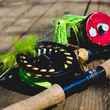

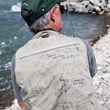
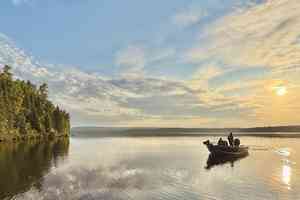


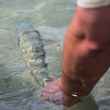

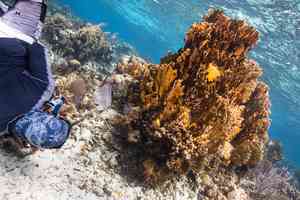


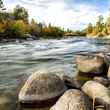



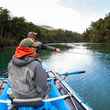
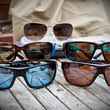
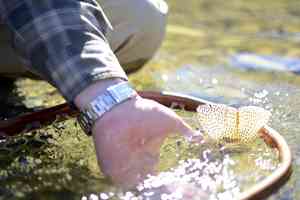
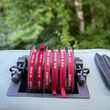

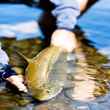
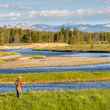
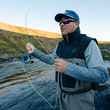
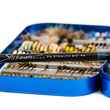
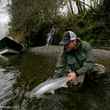
Comments
Scott Albert replied on Permalink
What are good polarized sun glasses to use?
Chad Shmukler replied on Permalink
Scott -
Here are our favorites:
https://www.hatchmag.com/articles/best-fishing-sunglasses-2019/7714597
Pages